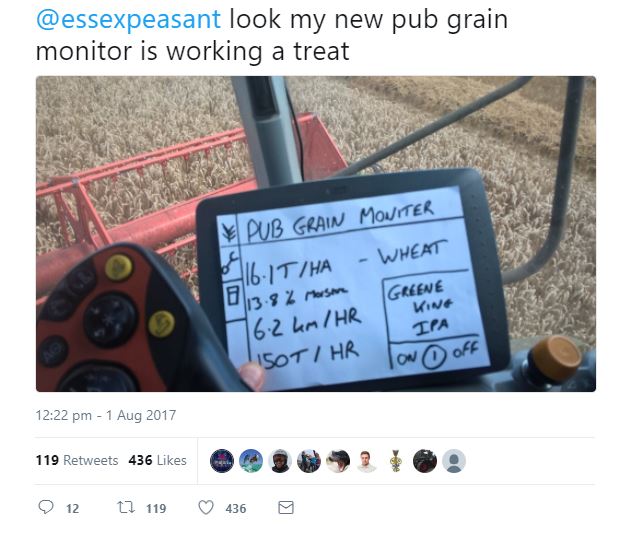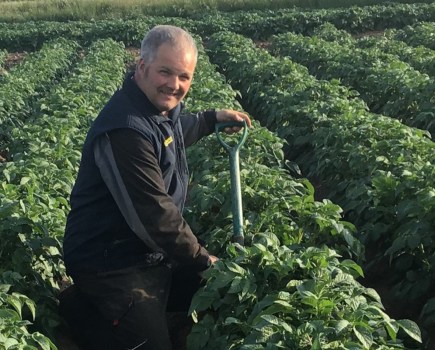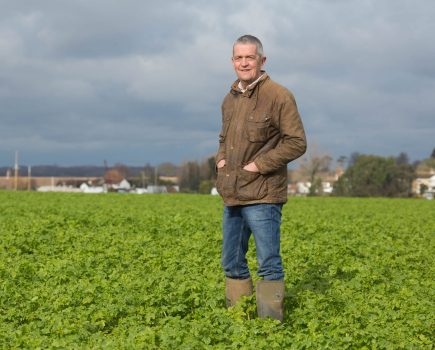The various ways the centenary of the First World War are being recollected makes for interesting reading and listening. It was in 1917 that food became a huge issue for all sides of the hostilities. The 1916 harvest had been a bad one in Britain. The German U-boat campaign was at its peak and thousands of tonnes of food from across the globe were ending up on the bottom of the Atlantic rather than unloaded in British ports.
Britain’s 80-90% dependence on food needs was starting to look strategically perilous. In the spring of 1917, Prime Minister Lloyd George was being warned food supplies were down to a few weeks. Calorie intake for civilians and soldiers was reduced to 1700 a day, well below the 2500 a working and fighting man needed. Britain was on the brink of anarchy in the streets and defeat in Flanders.
In what was clearly a panic measure, rationing was suddenly brought in while farmers were paid to plough up grassland to plant crops. ‘Back to the 1870s’ was the cry that went up as land that had laid idle for forty years was brought back into production. The arable land of Britain was increased by a massive 7.5 million acres. A food crisis was averted but only just.
To even things up, the 1917 harvest in Germany proved more disastrous than the 1916 British one with prolonged wet weather. It became known as the ‘turnip harvest’ as turnips were added to a range of foodstuffs such as bread to try to eke them out. Because of this sudden collapse in food supply, millions in Germany died of malnutrition in 1917 and 1918. Some historians suggest it was prolonged lack of calories and inedible food that were key factors to the sudden collapse in national and military morale that lead to German capitulation in 1918.
One of the purposes of remembering the events of a hundred years ago is the realisation this is our recent past. In terms of our own personal family histories, most of us appreciate that the events of 1914-1918 have coloured the circumstances of our own upbringing.
But also times change. Unless Brexit negotiations go very badly it’s most unlikely this country will find itself blockaded by German submarines again. However as recent NFU stats remind us, we are becoming more and more dependent as a country on imports for our food needs. In 2017, if we were totally dependent on our own harvest for our national food needs we would have run out of food on 6 Aug. 30 years ago, that date would have been in late Sept.
So as we remember ‘The Great War’ at a time when as an island nation we rethink how we are going to feed ourselves going forward, it’s worth remembering the importance of food and how it has coloured our history and will continue to do so.
 Social media can become a bit of an over-consuming distraction if you are not careful, but I’ve come to enjoy the banter between combine driving farmers at harvest time that takes place on Twitter. There’s always a bit of an edge as to who has the best weather or conversely who has the worst. Then there’s who’s combining the wettest wheat or who’s working latest into the night.
Social media can become a bit of an over-consuming distraction if you are not careful, but I’ve come to enjoy the banter between combine driving farmers at harvest time that takes place on Twitter. There’s always a bit of an edge as to who has the best weather or conversely who has the worst. Then there’s who’s combining the wettest wheat or who’s working latest into the night.
Then of course there’s pub-yield syndrome where Twitter has taken over from the public bar. The theory behind pub-yield syndrome is that the more you drink the higher yields get. The Twitter version takes out the alcohol but doesn’t seem to stop the over-gilding of the lily. Top combine driving tweet goes to David Hillier of Suffolk who sent me this while we were both combining in early Aug 50 miles apart. I didn’t stop laughing for 20 acres.




